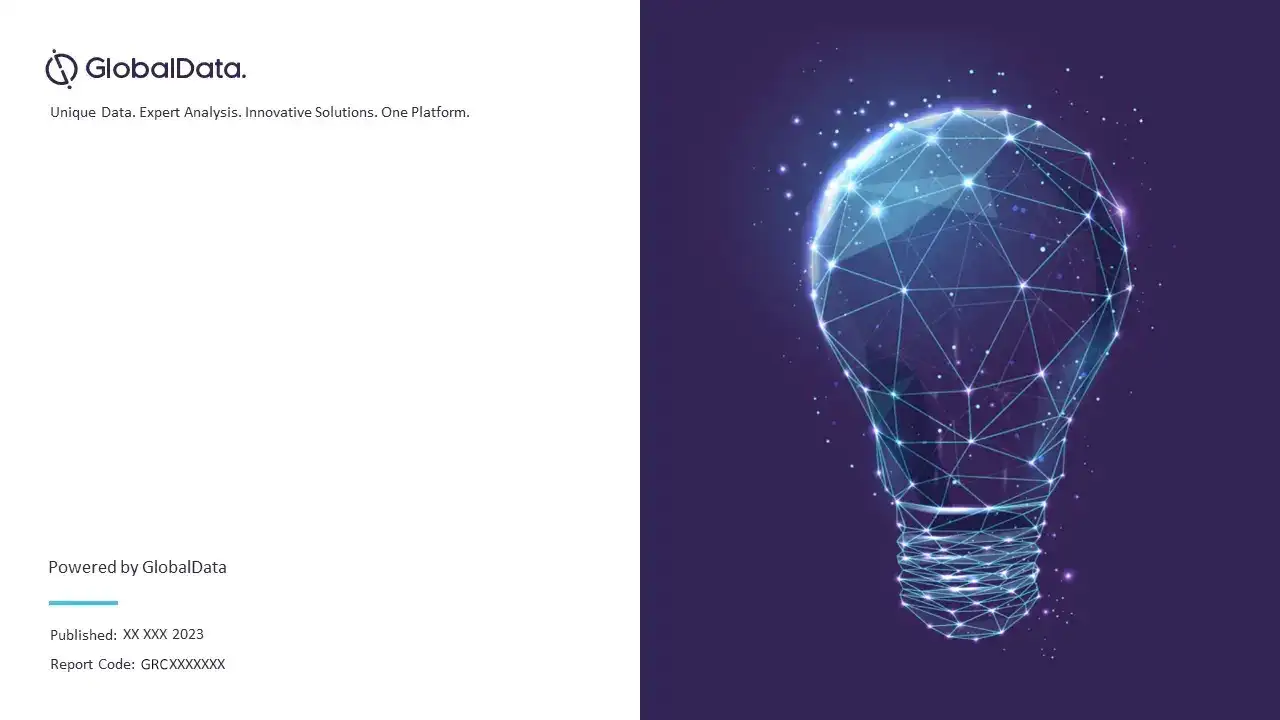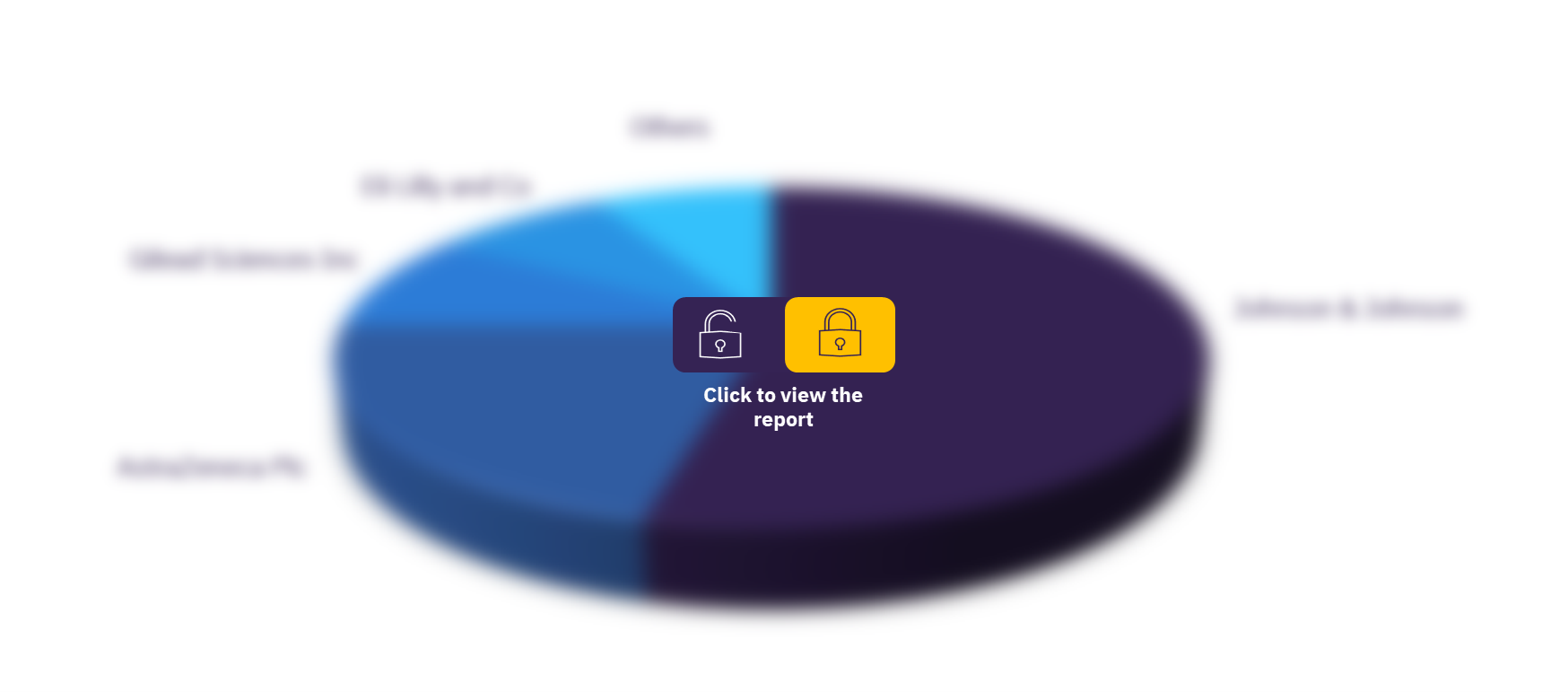COVID-19: Contract Pharmaceutical Development and Manufacturing Relationships
Powered by ![]()
All the vital news, analysis, and commentary curated by our industry experts.
This report examines contract manufacturing agreements for vaccines and therapies targeting COVID-19. It reports that there are more than 1,000 vaccines and therapies in development for COVID-19, and 36 vaccines and therapies approved (or granted emergency use authorization) for COVID-19 (as of report publication). At the beginning of the pandemic, slightly more than half of these agreements were for vaccines; this proportion has risen and continues to rise, as several vaccines have proven their safety and efficacy, received approval, and are being ordered in billions of doses by numerous governments.
COVID-19 therapy development has been less successful, although there are several efficacious therapies on the market. There is still an unmet need in this area, as vaccine distribution takes time, vaccine efficacy is not 100%, and certain parts of the population will not receive a vaccine or will not have a strong immune response. Many of the promising clinical-stage therapies and marketed therapies are monoclonal antibodies (often repurposed from development in other indications). Their manufacture requires CDMOs with specialized biologic capabilities.
What are the market dynamics and trends in the contract manufacturing of COVID-19 therapeutics and vaccines?
Marketed vaccines and therapies: 36 vaccines and therapies are approved or otherwise authorized for emergency use. For vaccines especially, the shift to commercial-scale volumes necessitates new and larger contract manufacturing agreements.
Pipeline vaccines and therapies: More than 1,000 vaccines and therapies are still in development for COVID-19. Some, now in late-stage development, will be approved, but most will undergo attrition.
Vaccine contracts increase: The ratio of vaccine: therapy manufacturing contracts has increased over time as several successful vaccines reach the market. Many CDMOs are involved in the commercial scale-up effort for hundreds of billions of doses. This high volume can make manufacturing slots scarce at some CDMOs.
The US wins contracts: US facilities are the clear winner by the number of contract manufacturing agreements. India and Germany are in second and third places.
Complex active pharmaceutical ingredients (API): Contract manufacturing agreements are most commonly for API – Biologics (Protein and Peptide). API is an early production step; many products will not progress far enough in clinical trials to require a final dose from the manufacturer. Protein and Peptide are popular molecule types because of the preponderance of vaccines and monoclonal antibodies in the COVID-19 pipeline. The top vaccines require either viral vectors or mRNA—both novel technology. All these molecules require contract manufacturing organizations with specialist facilities for this relatively complex manufacturing.
What are the COVID-19 therapies and vaccines that are marketed worldwide?
There are 36 therapies and vaccines marketed worldwide through full regulatory approvals or through emergency use authorizations. In developed pharma markets, mRNA and vector vaccines dominate over other vaccine types. These are novel molecule types and require special manufacturing expertise.
With multiple vaccines having shown impressive efficacy, notably for reductions in the need for hospitalization and mortality, the window for utility for COVID-19 therapies may be rapidly contracting (see COVID-19 Pharma Executive Briefing, July 27, 2021). However, this may be offset by increased illness caused by the predicted rise of vaccine-resistant variants and shortages of vaccines in certain countries, such as India. Pfizer CEO Albert Bourla told Fox News on August 24 that it is “likely” that a variant of SARS‑CoV‑2 will “one day” emerge that is resistant to Pfizer’s current vaccine; at that time, the company plans to develop a tweaked vaccine within three months.
What is the value chain of contract manufacturing industry?
The contract manufacturing industry’s value chain is simplified into three main segments, beginning with API, which is the active component of a vaccine or therapy. API manufacturing is followed by dose form manufacturing, when active and inactive ingredients are combined to produce the final dose form, such as a tablet or an injectable. The final step is the packaging: primary packaging is the placing of a dose form into the container that makes actual physical contact with the drug, e.g., a vial or prefilled syringe for an injectable. Secondary packaging is the placing of a primary package into an outer container, for example, putting a vial into a cardboard box.
As illustrated by the value chain, API is the starting step and can have big implications on which dosage forms or packaging are used later in the process. For instance, a high number of contract service agreements being made for biologic API manufacture (Section 0) has major implications for injectable dose form manufacturing and packaging.
Contract manufacturing agreements for COVID-19 vaccines and therapies, by manufacturing facility
For more insights, download a free report sample
Who are the top CDMOs with contract manufacturing agreements for COVID-19 vaccines and therapies?
The leaders include the CDMOs Catalent and Lonza, and the pharma sponsor companies AstraZeneca, Johnson & Johnson, and Pfizer.
CDMOs with contract manufacturing agreements for COVID-19 vaccines and therapies
To know more about key players, download a free report sample
Market report scope
|
CDMOs |
Catalent and Lonza, AstraZeneca, Johnson & Johnson, and Pfizer |
Scope
This report is the companion to Contract Manufacturing Service Agreements – Rising Manufacturing Opportunities Driven by Pharmaceutical Pipeline Expansion (July 2020). IT covers contract manufacturing agreements for COVID-19 vaccines and drugs worldwide, across a range of different services and manufacturing scales. It covers clinical and commercial contracts. As COVID-19 pharmaceuticals are being ordered in billions of doses by numerous governments, the number of contract service agreements secured serves as an indicator of a CMO’s performance. This report is critical for establishing an understanding of the overall CMO industry as it responds to the challenges and opportunities of the pandemic.
This 52-page report gives an important expert quantitative analysis of the contract manufacturing industry’s response to the COVID-19 pandemic. Findings are based on the industry’s most comprehensive databases of the CMO industry (GlobalData’s Databases of Contract Service Providers, Drugs, and Deals). This analysis is primarily driven by the Deals Database, which is continuously updated and reveals manufacturing relationships for Pharma products and the types of services offered. The 23 figures and 6 tables throughout the report illustrate major points and trends.
- Overview of contract manufacturing agreements worldwide for COVID-19 pharmaceuticals and the levels of outsourcing associated with different services and drug type
- Detailed view of CDMO performance by contract manufacturing agreement and an assessment of their manufacturing scale
- Manufacturing agreements are assessed by different molecule types, service type, dose form, facility geography, sponsor company types, and CDMO types.
Reasons to Buy
This report is required reading for
- CMO executives who must have deep understanding of the COVID-19 vaccine and drug landscape both pipeline and marketed to make strategic planning and investment decisions.
- Sourcing and procurement executives who must understand crucial components of the supply base in order to make decisions about supplier selection and management.
- Investors that need a deeper understanding of the market to identify and value potential investment targets.
Abzena Ltd
Adienne Pharma & Biotech SA
Advanced BioScience Laboratories Inc
Advent Srl
AGC Biologics Inc
Ajinomoto Bio-Pharma Services
Akron Biotechnology LLC
Aldevron LLC
Allergopharma GmbH & Co KG
Almac Group Ltd
Amgen Inc
Apeptico Forschung und Entwicklung GmbH
Aragen Bioscience Inc
Aspen Pharmacare Holdings Ltd
AstraZeneca UK Ltd
Attwill Medical Solutions
Avid Bioservices Inc
Avra Laboratories Pvt Ltd
Bachem Holding AG
Bajaj Healthcare Ltd
Batavia Biosciences BV
Bausch Health Companies Inc
Baxter Biopharma Solutions
Bayer AG
BDR Pharmaceuticals Internationals Pvt Ltd
Beijing Institute of Biological Products
Beijing Minhai Biotechnology Co Ltd
Bharat Biotech Ltd
Binnopharm JSC
Biocad
BioCell Corp Ltd
BioCentriq
Biocon Ltd
BioConvergence LLC
Biofabri SL
Biogen Inc
Biological E Ltd
BioNTech SE
Biotechpharma UAB
Bryllan LLC
Cadila Healthcare Ltd
Cambrex Corp
Cascade Chemistry
Catalent Inc
Celltrion Inc
Celonic AG
Cenexi SAS
Centaur Biopharmaceutical Services Inc
Chime Biologics Ltd
CinnaGen Ilac San ve Tic AS
Cipla Ltd
Clover Biopharmaceuticals
CMIC Holdings Co Ltd
Cobra Biologics Ltd
CSL Behring Australia Pty Ltd
Curia Inc
Daiichi Sankyo Biotech Co Ltd
Dalton Pharma Services
Delpharm SAS
Dr. Reddy's Laboratories Ltd
Drugmex SAPI de CV
Dyadic International Inc
Eli Lilly and Co
Emergent BioSolutions Inc
Esteve Huayi Pharmaceutical Co Ltd
EUSA Pharma
Exelead Inc
Exothera SA
Fareva SA
Flamma SpA
Fujifilm Corp
GALENpharma GmbH
Gamaleya Federal Research Center of Epidemiology and Microbiology
GC Pharma
Genentech USA Inc
Generium
Genscript Biotech Corp
Gilead Sciences Inc
Gland Pharma Ltd
GlaxoSmithKline Inc
Goodwin Biotechnology Inc
Grand River Aseptic Manufacturing Inc
Haffkine Bio-Pharmaceutical Corp Ltd
Hainan Visum Pharmaceutical Co Ltd
Halix BV
Hankook Korus Pharm Co Ltd
Hester Biosciences Ltd
Hetero Drugs Ltd
Hikma Pharmaceuticals Plc
Hoffmann-La Roche Ltd
Hualan Biological Engineering Inc
Humanigen
iBio Inc
IDT Biologika GmbH
Indian Immunologicals Ltd
Institute of Medical Biology Chinese Academy of Medical Sciences
Institute of Virology Vaccines and Sera Torlak
Insud Pharma
IriSys LLC
ISU ABXIS Co Ltd
Janssen Biotech Inc
JCR Pharmaceuticals Co Ltd
Jubilant HollisterStier LLC
Jubilant Pharmova Ltd
Julphar Saudi Arabia LLC
Kaneka Corp
Kaneka Eurogentec SA
Kern Pharma SL
KM Biologics Co Ltd
Laboratorio Reig Jofre SA
Laboratorios de Biologicos y Reactivos de Mexico SA de CV
Laboratorios Farmaceuticos Rovi SA
Laboratorios Richmond SACIF
LakePharma Inc
LFB Biomanufacturing
List Biological Laboratories Inc
Lonza Group Ltd
Mabxience Holding SL
Mankind Pharma Ltd
Medicago
Merck
Merck & Co Inc
Mibe GmbH Arzneimittel
MilliporeSigma
Mithra Pharmaceuticals SA
Moderna Inc
Morepen Laboratories Ltd
National Resilience Inc
National Resilience Inc (including subsidiaries Ology Bioservices Inc, Therapure Biopharma Inc)
Nephron Pharmaceuticals Corp
NeuroRx
Nipro Pharma Corp
Northern RNA Inc
Novartis AG
Novartis Farma SpA
Novasep Holding SAS
Novavax
Oakwood Laboratories LLC
Oxford BioMedica Plc
Panacea Biotec Ltd
Par Sterile Products LLC
Patheon NV (Thermo Fisher Scientific)
PCI Pharma Services
Pfizer Inc
PharmaMar
Pharmaniaga Berhad
Pharmasyntez
Pharmstandard
Polymun Scientific Immunbiologische Forschung GmbH
PolyPeptide Group AG
Polyvac
PT Bio Farma
Quotient Sciences Ltd
Recipharm AB
RedHill Biopharma
Regeneron Pharmaceuticals Inc
Rentschler Biopharma SE
Rhein-Minapharm Biogenetics SAE
Richter-Helm BioLogics GmbH & Co KG
Ridgeback
R-Pharm
Saidal
Samsung Biologics Co Ltd
Sanofi
Saptagir Laboratories Pvt Ltd
Sciarra Laboratories Inc
Serum Institute of India Pvt Ltd
SGS Life Science Services
Shenzhen Yuanxing Gene Technology Co Ltd
Shilpa Medicare Ltd
Siegfried Holding AG
Sinovac Biotech Ltd
SK Bioscience Co Ltd
Sorrento Therapeutics Inc
Sothema
Sovereign Pharma Pvt Ltd
Spera Nexus Inc
Spera Pharma Inc
STC Biologics Inc
Stelis Biopharma Pvt Ltd
Sterling Pharma Solutions Ltd
Strides Pharma Science Ltd
Summit Biosciences Inc
Supriya Lifescience Ltd
Symbiosis Pharmaceutical Services Ltd
Synairgen
Sypharma Pty Ltd
The Biovac Institute
The State Research Center of Virology and Biotechnology VECTOR
TopRidge Pharma Ltd
Turk Ilac ve Serum Sanayi AS
Uniao Quimica Farmaceutica Nacional SA
Unigen Co Ltd
UPM Pharmaceuticals Inc
Vabiotech
Vacsera
Valneva
Vaxart
Vectura Group Plc
Vetter Pharma-Fertigung GmbH & Co KG
VGXI Inc
Vibalogics GmbH
Vigene Biosciences Inc
Virchow Biotech Pvt Ltd
Wacker Chemie AG
Waisman Biomanufacturing
WuXi Biologics
Zydus Healthcare Ltd
Table of Contents
Table
Figures
Frequently asked questions
-
Who are the top players in outsourcing COVID-19 Vaccine/Therapeutic Manufacturing?
Johnson & Johnson, AstraZeneca Plc, Gilead Sciences Inc., Eli Lily Co., and Regeneron Pharmaceuticals Inc. are the top bio/pharma companies in outsourcing COVID-19 vaccine/therapeutic manufacturing.
Catalent, Lonza, Curia, Thermo Fisher, Samsung Biologics Co Ltd, Wuxi Biologics/STA, and AGC Biologics Inc are the top contract manufacturing organizations in outsourcing COVID-19 vaccine/therapeutic manufacturing.
Get in touch to find out about multi-purchase discounts
reportstore@globaldata.com
Tel +44 20 7947 2745
Every customer’s requirement is unique. With over 220,000 construction projects tracked, we can create a tailored dataset for you based on the types of projects you are looking for. Please get in touch with your specific requirements and we can send you a quote.
Related reports
View more Pharmaceuticals reports










